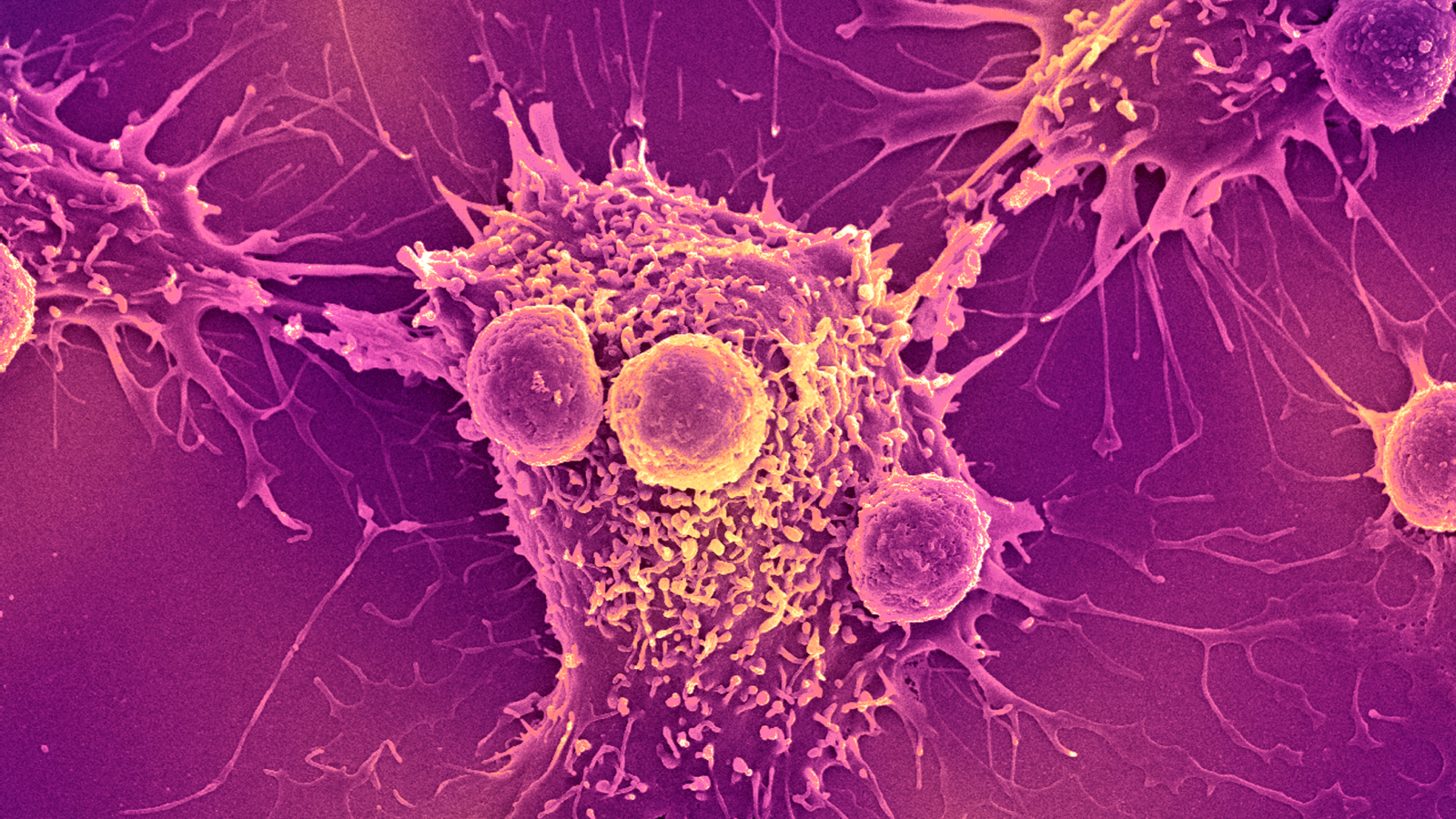T4K3.news
Plant virus shows potential in cancer therapy
Researchers discover how cowpea mosaic virus can boost immune response against cancer.

Researchers have discovered how a plant virus can effectively treat cancer by boosting immune responses.
Plant virus shows promise in cancer immunotherapy
A study from the University of California San Diego highlights the cowpea mosaic virus (CPMV) as a potential cancer immunotherapy. Unlike the cowpea chlorotic mottle virus (CCMV), CPMV activates the immune system to recognize and eliminate cancer cells effectively. In preclinical trials, CPMV demonstrated strong anti-tumor effects in both mice and dogs. It recruits immune cells to tumors and helps establish long-lasting immune memory. These findings suggest CPMV could offer a low-cost, effective treatment option and are pushing researchers toward clinical trials.
Key Takeaways
"It is fascinating that CPMV, but not other plant viruses, stimulates an anti-tumor response."
Nicole Steinmetz emphasizes CPMV's unique cancer-fighting properties.
"What we found most exciting is that although human immune cells are not infected by CPMV, they respond to it."
Anthony Omole discusses the immune response triggered by CPMV.
The findings regarding CPMV represent a significant advancement in cancer treatment. This unique virus not only aids in direct tumor destruction but also enhances the body's overall immune response to cancer. As healthcare costs rise, the potential for CPMV to be produced sustainably in plants presents an attractive option for affordable cancer care. The transition from lab research to clinical trials could ultimately change how we approach cancer immunotherapy, emphasizing immunity reactivation rather than invasive treatments.
Highlights
- CPMV becomes a beacon of hope in cancer treatment.
- A plant virus shows the power of nature in fighting cancer.
- Molecular farming offers a new path for affordable cancer therapies.
- The immune system learns to battle cancer with CPMV.
Potential risks in cancer immunotherapy research
The development of CPMV as a viable cancer treatment brings up regulatory and safety concerns as researchers move toward clinical trials. Ensuring efficacy without adverse effects will be paramount, and public reception is crucial in assessing the long-term viability of such treatments.
As research progresses, CPMV could reshape the landscape of cancer treatment options.
Enjoyed this? Let your friends know!
Related News

Research shows stevia may combat pancreatic cancer

New studies explore sunlight benefits for health

Universal cancer vaccine begins human trials

New research reveals Stevia's potential against cancer

New cancer vaccine shows potential for all tumours

Bowel cancer risk may be lowered through diet changes

New study finds estrogen may help MS treatment

Study Shows Viruses Can Reactivate Breast Cancer
